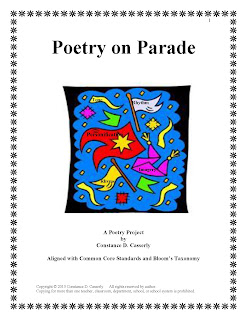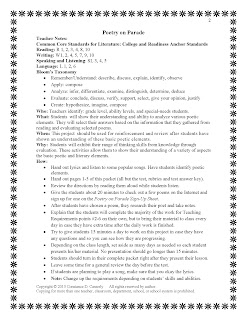William Blake's The Tiger always colors my mind with the image of my favorite animal gliding through a leafy jungle forest:
| "TIGER, tiger, burning bright | |
| In the forests of the night, | |
| What immortal hand or eye | |
| Could frame thy fearful symmetry?" |
Neil Simon's lyrics always resonate in my soul because the dance of his closely entwined lyrics and music never fails to twang the strings of my emotions. Any of the verses from The Sounds of Silence have spoken to me for 49 years, especially this one:
"Fools", said I, "You do not know
Silence like a cancer grows
Hear my words that I might teach you
Take my arms that I might reach you"
But my words, like silent raindrops fell
And echoed
In the wells of silence..."
Silence like a cancer grows
Hear my words that I might teach you
Take my arms that I might reach you"
But my words, like silent raindrops fell
And echoed
In the wells of silence..."
Adele's Album 21 has accompanied my writing this morning. "We were born and raised, In a summer haze, Bound by the surprise of our glory days," (Someone Like You).
Why, then, do the flames that spark students' desire to learn often sputter when they face discussing and analyzing poetry? This educational conundrum dogged my planning for 30+ years, spawning effort upon effort to keep their interest burning instead of dying into piles of apathetic ashes. Two units that always stoked their interest were the Poetry In Motion unit (Lesson-Up Express: April Excursion-Poetry in Motion blog 4/1/2013) and today's offering, Poetry on Parade.
For this two-week unit, the class listens to music, the teacher reviews the elements of poetry, the students research and then teach a poem focusing on one of the elements that they analyzed, and they also write a poem. The unit culminates with a test on the elements of poetry so the students can show their deeper understanding of the terms they studied.
This product is aligned with Common Core Standards and Bloom's Taxonomy. Its ten pages it include: Teacher Notes, complete student directions, a sign up sheet where students select a teacher-chosen poem to prepare a lesson for and to present, an Imagery Activity sheet, a 60 point test with an answer key, and two rubrics: one for grading the students' analysis of their poem and the other to grade their presentation. Bonus: both rubrics can be used with any literary analytic essay and any presentation.
Why does it work? I think it's because it follows the Show Me-Help Me-Let Me teaching trinity.
Show Me: Teachers present the unit and review/reinforce previously taught poetic elements.
Help Me: They guide students through researching the poems on the teacher-chosen list and preparing the lessons that they will teach.
Let Me: Students prepare a teachable lesson on their poem. They will cull through research and pick what they need to do this. They will reinforce their understanding of poetic elements and how they work by completing the Imagery Activity, by fully analyzing their poem and by composing one of their own. Finally, they will articulate their material in ways they deem will appeal to their peers and that will keep their them engaged.
It changes ho-hum attitudes into high five energy because the students have ownership in what they are learning. Best of all, for teachers, this offering is music to their ears because it is FREE!
Download it from my store: http://www.teacherspayteachers.com/Product/Activity-Poetry-on-Parade
It changes ho-hum attitudes into high five energy because the students have ownership in what they are learning. Best of all, for teachers, this offering is music to their ears because it is FREE!
Download it from my store: http://www.teacherspayteachers.com/Product/Activity-Poetry-on-Parade
Here are a few images from the product to check out:
Happy Teaching,







No comments:
Post a Comment